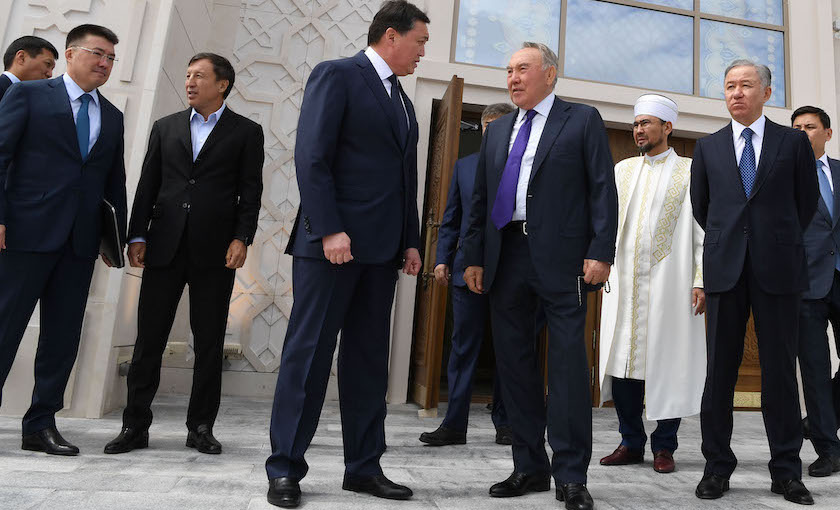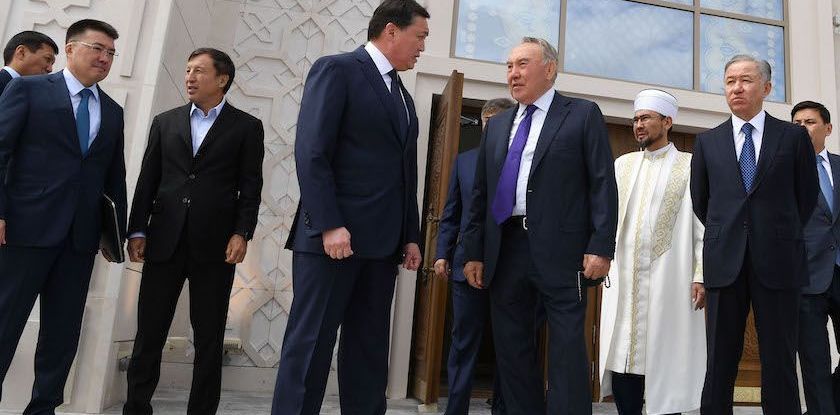In the article Akorda’s Pyrrhic Victory , we come to a sad conclusion that only one person per thousand protest-oriented Kazakhs is currently willing to participate in a real street action. Akorda’s political experts and sociologists have probably reached (will reach) the same conclusion as well.
Thus, the chances for the «upstairs» to listen to the protesters’ voice are minimal. If only because there is no real necessity for them (apart from their own feebleness and the growing fears of unpredicted developments) to do so. Therefore, the question whether the authorities will dare to make some real internal political changes that, one way or another, are bound to weaken the authoritarian regime and the «super-presidential» vertical remains open.
On the other hand, Akorda must now find a way to put a stop to the upsurge of the protest sentiment. And, to do so, it is likely to employ, apart from the usual administrative/enforcement civilians’ pressurizing, Kazakhstan’s typical contemporary instrument of talking a problem away. Moreover, this instrument is now being legitimized as an official operating tool.
We are talking about Kasym-Zhomart Tokayev’s decision to create the National Council of Public Trust under the President of the Republic of Kazakhstan. Its apologetic rhetoric is particularly noticeable on the back of the massive-scale police and judicial repressions against civilians who dared to take to streets or simply turned out to be in the wrong place at the wrong time.
In our opinion, further developments in the country will depend on several factors and, what is important, most of them will be outside of Akorda’s sphere of influence.
The first factor is the intensifying of the global geopolitical conflict that may lead to the US and Donald Trump attacking the zone located between the US’ two main opponents, China and Russia.
To do so, the US authorities have more than enough instruments, from reopening the investigations of the numerous corruption schemes involving the representatives of the Kazakh ruling elite to imposing sanctions which, for Kazakhstan, will be more detrimental that it is for Russia.
The second factor that may have a devastating effect on Kazakhstan is the further decline of the level and quality of life in the country.
All Akorda’s previous attempts to launch the non-resource economy, among other ways, with the help of foreign investors, have failed. As for the growth of the national economy on which the Kazakh Government reports on a regular basis, we believe it is incapable of positively influencing the well-being of most Kazakhs since the country is now experiencing the intensification of the social stratification process when the rich are becoming richer while the poor are becoming even poorer. Hence the more frequent than before protest actions on the part of those who have nothing to lose. With that, the state’s capabilities for increasing the social support and the number of its receivers are restricted by the budget limits.
The third factor that also lies outside of Akorda’s influence is the general mood of the Kazakh society.
This is the mood that had been observed in the Soviet society during the last years of the USSR’s existence when the people got massively tired of the authorities’ actions and the ruling CPSU and of the fact that the state promised much and delivered nothing. And, overlapping with the realization that, in other countries, people were living a completely different life, these nation-wide feelings gave birth to if not a dream than an expectation of changes. Something similar we believe is happening in Kazakhstan today. The only difference is that the consumerist moods in the Kazakh society are much more developed than in the USSR. And since this kind of social moods are rather inert, it is impossible to change (eliminate) them at once and even over the course of several years.
Obviously, those are not all the factors that may have a negative effect on the development of the internal political process in Kazakhstan. However, these three are enough to realize that, today, second time in the history of independent Kazakhstan, Akorda and the ruling elite in general have found themselves faced with a systemic choice:
- to agree to the political reforms that are being demanded from them, in other words, to de-facto begin giving way while hoping for the preservation of both the internal political stability and the results of the initial accumulation of capital in the country,
- or, on the contrary, to stiffen the political regime in the hopes that, this way, they will be able to put a stop to the growing protest moods in the country up to the time when the national economic growth and the increase of the level and quality of life are to begin.
In our opinion, it is unlikely that, today, Akorda and the ruling elite have among themselves the key players driven by strategic, national-scale or state-level ideas. Most of those involved in preparing, approving, making and implementing decisions are driven by their own private goals and tasks. For this reason, the end-result of their efforts usually amounts to an arithmetic or geometric average. This is how it has always been in Kazakhstan and this is not likely to change in the nearest future.
With that, the First President of the Republic of Kazakhstan, despite all his abilities and talents he is thought to possess, has always been but an element of this mechanism. An important element, a key element but not more than that. Therefore, his alleged withdrawal from state governance can only intensify the chaotic nature of the process but not change its character.
In view of this, the question arises an answer to which will be forming right before our eyes.
What will the ruling elite do in response to the demands of the protesters?
Will it act or will it imitate action? Will it react to the events happening in the country or will it ignore them? Will it try to change the negative developments, or will it try to use them to its own vested interest? Will it try to establish contacts with the civil society and learn to consider not only their own needs but the needs of those who have been banned from power, in other words, the needs of the people?
More likely than not, it will all be happening according to the old wisdom — don’t have thy cloak to make when it begins to rain. In other words, Akorda and its residents, observing the growth of the protest sentiment in the country, will start «making more cloaks» while doing nothing. Yet…





